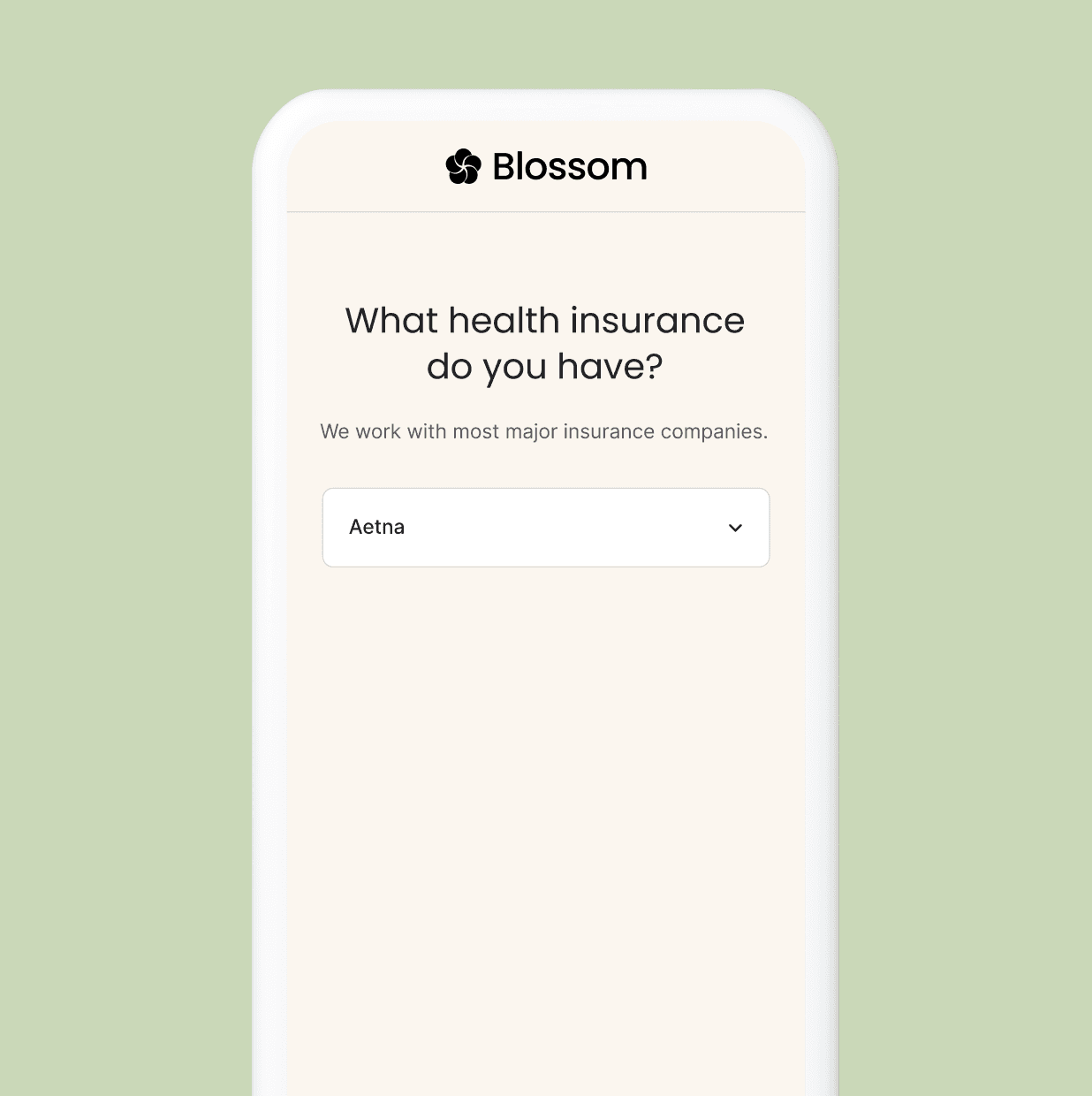Most patient copays $0-$22
Care that’s covered
All our psychiatrists take insurance.
Flexible Scheduling
Virtual visits make showing up easy.
Responsible prescribing
Medication, only as needed.
The core mental health conditions we treat.
What is Anxiety?
Anxiety is a natural stress response that becomes a mental health concern when it's excessive, persistent, and interferes with daily life. While everyone experiences occasional anxiety, anxiety disorders involve chronic worry, fear, or nervousness that is disproportionate to actual threats and difficult to control.
Unlike normal stress that resolves when a stressful situation ends, anxiety disorders cause ongoing distress even when there's no clear reason for concern. The body's "fight or flight" response becomes overactive, triggering physical symptoms alongside emotional ones.
When you experience anxiety, your brain perceives threat—whether real or imagined—and activates the sympathetic nervous system. This releases stress hormones like cortisol and adrenaline, causing physical symptoms such as rapid heartbeat, sweating, muscle tension, and difficulty concentrating. In anxiety disorders, this response occurs too frequently, too intensely, or in situations that don't warrant such strong reactions.
Types of Anxiety Disorders
Anxiety encompasses several distinct disorders, each with specific characteristics.
Generalized Anxiety Disorder (GAD)
Chronic, excessive worry about everyday matters—work, health, family, finances—that's difficult to control and occurs most days for at least six months. Physical symptoms include restlessness, fatigue, difficulty concentrating, muscle tension, and sleep problems.
Social Anxiety Disorder
Intense fear of social situations where you might be judged, embarrassed, or humiliated. This goes beyond shyness and can severely limit participation in work, school, and relationships.
Panic Disorder
Recurrent, unexpected panic attacks—sudden episodes of intense fear with physical symptoms like heart palpitations, sweating, trembling, shortness of breath, and feelings of impending doom. People often develop fear of having future attacks.
Specific Phobias
Intense, irrational fear of specific objects or situations (heights, flying, animals, blood, enclosed spaces) that leads to avoidance behavior.
Agoraphobia
Fear of places or situations where escape might be difficult or help unavailable if panic symptoms occur, often leading to avoidance of public transportation, open spaces, or crowds.
Treatment Options for Anxiety
Multiple effective treatments exist for anxiety disorders, often used in combination.
Cognitive Behavioral Therapy (CBT)
CBT helps identify and change thought patterns and behaviors that contribute to anxiety. It's considered highly effective for most anxiety disorders.
Medications
SSRIs: Sertraline (Zoloft), escitalopram (Lexapro), paroxetine (Paxil), and fluoxetine (Prozac)
SNRIs: Venlafaxine (Effexor) and duloxetine (Cymbalta)
Benzodiazepines: For short-term relief, though they carry dependence risks
Buspirone: Non-addictive option specifically for GAD
Lifestyle and Alternative Approaches
Regular exercise and physical activity
Mindfulness meditation and relaxation techniques
Adequate sleep and stress management
Limiting caffeine and alcohol
Support groups and peer support





